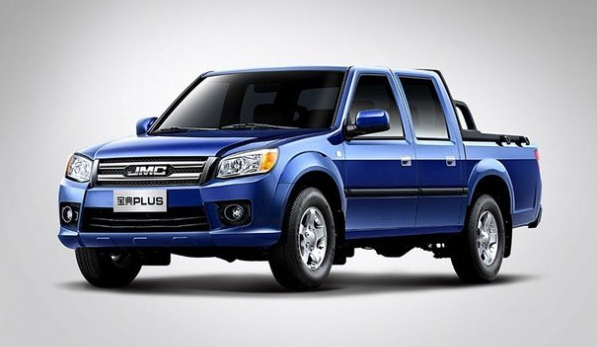The History of JMC in South Africa
JMC (Jiangling Motors Corporation) has steadily emerged as a noteworthy player in the South African automotive market, known for its reliable and affordable commercial vehicles. Established in 1993 in Nanchang, China, JMC originally focused on manufacturing light-duty trucks and vans. Over the years, the brand has evolved and expanded its offerings, making a significant impact in various markets, including South Africa.
Entry into the South African Market
JMC officially entered the South African market in 2007, bringing with it a range of light commercial vehicles tailored to meet local demand. The company aimed to provide robust, cost-effective solutions for businesses, particularly in sectors such as construction, logistics, and agriculture. By focusing on practicality and affordability, JMC quickly captured the attention of South African entrepreneurs and small business owners.
One of the brand’s first successful models in the region was the JMC 1.2-ton truck. Its competitive pricing and reliable performance made it an appealing choice for those needing dependable transportation for goods and materials. As JMC gained traction, it established a network of dealerships and service centers across the country, ensuring customers had access to support and maintenance.
Building a Reputation for Reliability
By the 2010s, JMC had solidified its reputation in South Africa as a provider of reliable commercial vehicles. The brand's focus on durability and performance resonated with customers in a market that often prioritizes value for money. JMC vehicles were increasingly seen as practical workhorses, ideal for various applications—from urban deliveries to rural farming.
The introduction of the JMC Vigus, a double-cab bakkie (pickup truck), marked a significant milestone for the brand. Launched in 2016, the Vigus was designed to compete with established players in the bakkie segment. Its blend of power, utility, and comfort appealed to a broader audience, including families and outdoor enthusiasts. The Vigus quickly gained popularity and helped elevate JMC's profile in the competitive South African automotive landscape.
Expanding Product Range and Local Assembly
As demand for JMC vehicles grew, the company began to expand its product lineup. By the late 2010s, JMC introduced various models, including vans and larger trucks, catering to different market needs. This diversification was crucial for establishing JMC as a comprehensive provider of commercial transportation solutions.
In 2019, JMC took a significant step by launching local assembly operations in South Africa. This move not only reduced import costs but also allowed the company to tailor vehicles to better suit local conditions and preferences. Local assembly also helped JMC respond more quickly to market trends, enhancing its competitive edge.
Emphasis on Sustainability and Innovation
In recent years, JMC has placed a greater emphasis on sustainability and technological innovation. With increasing awareness of environmental issues, the brand has explored developing electric and hybrid vehicles to meet the demands of eco-conscious consumers. The introduction of environmentally friendly options reflects JMC's commitment to adapting to global automotive trends.
Additionally, JMC has been investing in improving the technology and safety features of its vehicles. Enhanced infotainment systems, advanced driver assistance technologies, and improved safety standards have been incorporated into newer models, aligning with consumer expectations for modern vehicles.
The Future of JMC in South Africa
As JMC looks toward the future, it remains well-positioned to capitalize on the growing demand for commercial vehicles in South Africa. The brand's reputation for affordability and reliability continues to resonate with businesses seeking cost-effective solutions. With local assembly operations, JMC can further refine its products to meet the unique challenges of the South African market.
Moreover, the increasing focus on sustainability presents new opportunities for JMC. As the South African government and consumers become more environmentally conscious, the demand for electric and hybrid commercial vehicles is expected to rise. JMC’s proactive approach to innovation and sustainability will likely play a critical role in its future success.
Conclusion
JMC’s history in South Africa is characterized by strategic growth, adaptability, and a commitment to providing reliable commercial vehicles. From its initial entry into the market to the establishment of local assembly operations, JMC has demonstrated its ability to respond to consumer needs and market trends. As the automotive landscape continues to evolve, JMC is poised to remain a key player, contributing to the country’s transportation solutions while embracing sustainability and innovation.









